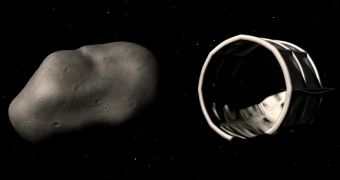Officials from Planetary Resources Inc. announce the signing of a new Space Act Agreement (SAA) with the US National Aeronautics and Space Administration (NASA). The purpose of the contract is the design and implementation of a new crowdsourcing algorithm, to be used for identifying, tracking and characterizing near-Earth objects (NEO) such as asteroids and meteorites.
The Asteroid Zoo partnership will constitute the basis for the new program. This partnership was developed by the Zooniverse collaboration and the Adler Planetarium, and its purpose was to engage amateur scientists around the world.
The goal of the new SAA is to create an accurate scientific database of as many NEO as possible. Planetary Resources is involved in this project because its goal as a company is the exploitation of asteroids for commercial gain. Platinum and water are especially targeted in this effort.
Backed by the likes of James Cameron, Charles Simonyi, Eric Schmidt, Larry Page and Sir Richard Branson, the company aims to begin conducting space explorations and exploitations within the next couple of decades. The new crowdsourcing effort is meant to help experts determine the best possible targets.
All the data obtained through the new SAA will be open-sourced and publicly available, as a condition of NASA's involvement with the effort. The American space agency contributes some of its resources and expertise, which will make identifying NEO
“This partnership uses NASA resources in innovative ways and takes advantage of public expertise to improve identification of potential threats to our planet. This opportunity is one of many efforts we’re undertaking as part of our asteroid initiative,” says NASA expert Lindley Johnson.
The expert holds an appointment as the executive for the agency's NEO Observation Program. Johnson says that the total number of asteroids in our solar system probably lies somewhere around 650,000.
“While improving the algorithms to detect NEOs helps gain more data, additional surveys, telescopes and capability put to the search will also assist in completing the task of compiling a comprehensive open-sourced catalog,” explains the president and chief engineer at Planetary Resources, Chris Lewicki.

 14 DAY TRIAL //
14 DAY TRIAL //